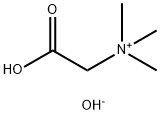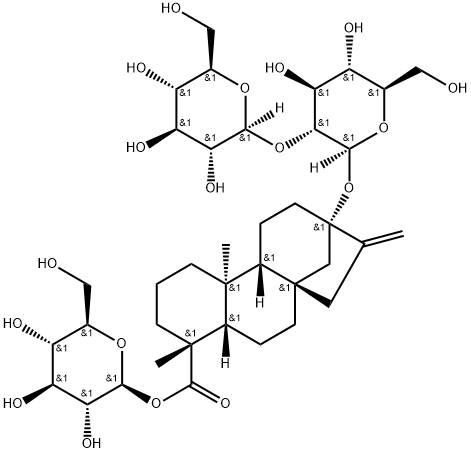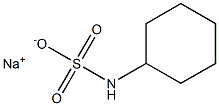A1226812
Betaine , Analysis of standard products, ≥99% , 107-43-7
Synonym(s):
(Carboxymethyl)trimethylammonium inner salt;Betaine;Oxyneurine;TMG;Trimethylglycine
CAS NO.:107-43-7
Empirical Formula: C5H11NO2
Molecular Weight: 117.15
MDL number: MFCD00012123
EINECS: 203-490-6
| Pack Size | Price | Stock | Quantity |
| 100MG | RMB196.80 | In Stock |
|
| others | Enquire |
Update time: 2022-07-08
PRODUCT Properties
| Melting point: | 310 °C (dec.) |
| Boiling point: | 218.95°C (rough estimate) |
| Density | 1.00 g/mL at 20 °C |
| vapor pressure | 0.05Pa at 25℃ |
| refractive index | 1.4206 (estimate) |
| FEMA | 4223 | BETAINE |
| storage temp. | 2-8°C |
| solubility | methanol: 0.1 g/mL, clear |
| pka | 1.83(at 0℃) |
| form | Crystals or Crystalline Powder |
| color | colorless |
| Odor | bland |
| biological source | sugar beets |
| Water Solubility | 160 g/100 mL |
| Sensitive | Hygroscopic |
| Merck | 14,1179 |
| BRN | 3537113 |
| Stability: | Stable. Hygroscopic. Incompatible with strong oxidizing agents. |
| InChIKey | KWIUHFFTVRNATP-UHFFFAOYSA-N |
| LogP | -3.1 at 20℃ |
| CAS DataBase Reference | 107-43-7(CAS DataBase Reference) |
| NIST Chemistry Reference | Methanaminium, 1-carboxy-n,n,n-trimethyl-, hydroxide, inner salt(107-43-7) |
| EPA Substance Registry System | Betaine (107-43-7) |
| Absorption | ≤0.05 at 280nm in methanol at 1M ≤0.09 at 260nm in methanol at 1M |
Description and Uses
Betaine, also called betaine anhydrous, trimethylglycine (TMG) is a methyl group donor and involved in liver function, cellular reproduction, and helping make carnitine. It is an amino-acid betaine and a glycine derivative, with a role in regulating cellular hydration and maintaining cell function.
betaine is a surfactant, humectant, and excellent skin conditioner. It is also used to build product viscosity and as a foam booster. It is found mostly in skin cleansers, shampoos, and bath products.
Safety
| Hazard Codes | Xn |
| Risk Statements | 20/21/22-36/37/38 |
| Safety Statements | 24/25-36-26 |
| WGK Germany | 3 |
| RTECS | DS5900000 |
| F | 3-10 |
| TSCA | Yes |
| HS Code | 29239000 |
| Hazardous Substances Data | 107-43-7(Hazardous Substances Data) |





